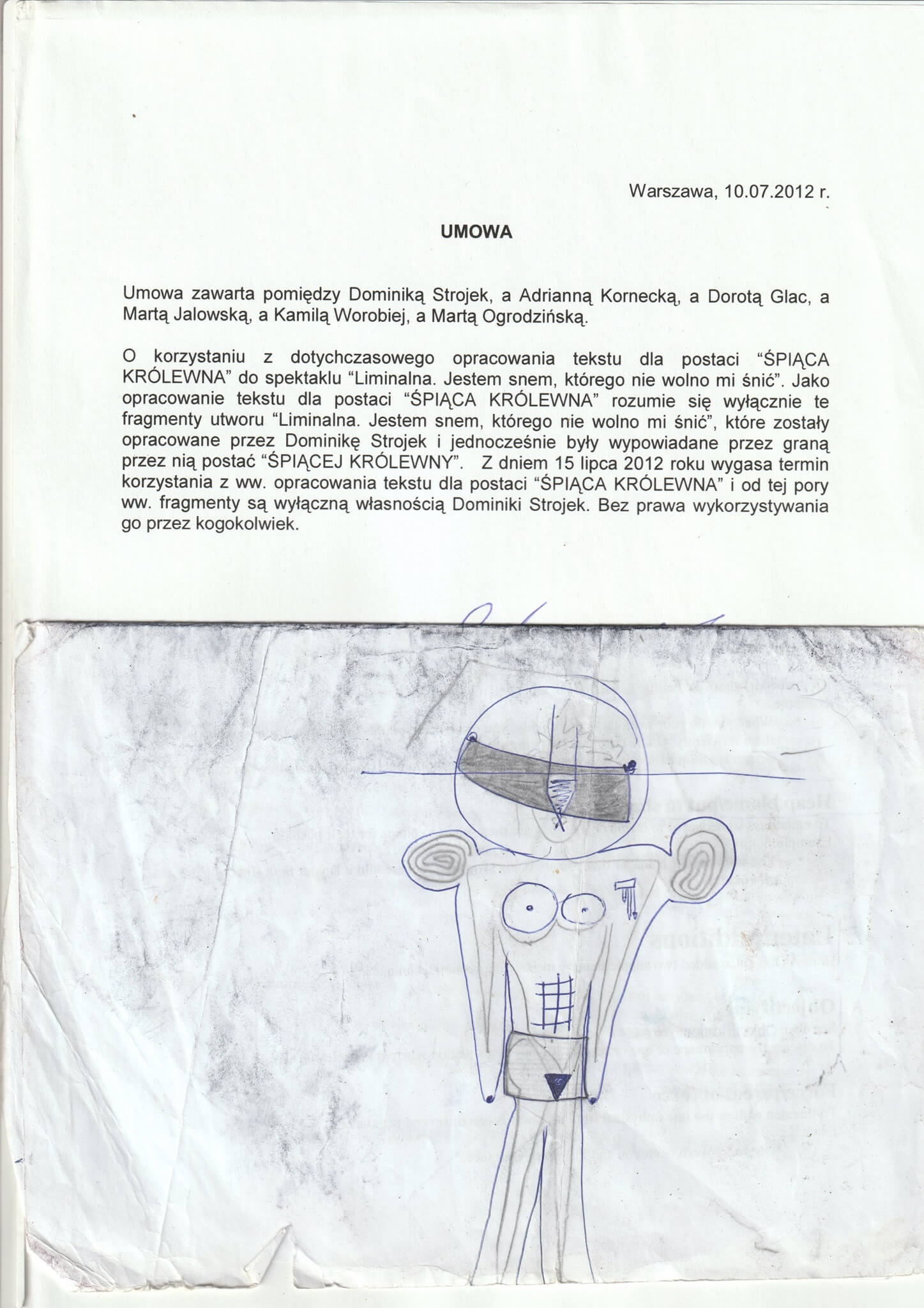Collectivity
In a shabby red folder taken out of a theatre prop box, we found an agreement by which TERAZ POLIŻ waives the rights to use the lines of Sleeping Beauty, the character played by Dominika Strojek in “Liminal”. This document, which was signed after Dominika left the team, marks one of the most important moments of change in the composition of the group, the structure of which has always been fluid.
Currently, the collective members are Alina Gajdamowicz, Dorota Glac, Marta Jalowska, Ada Kornecka, Marta Wesołowska and Anna Zakościelna, but over the course of sixteen years they have also included Ilona Błaut, Kora Gałązka, Simona Kasprowicz, Ula Kijak, Karolina Micuła, Marta Miłoszewska, Emanuela Osowska, Dominika Strojek, Anna Wilczyńska and Kamila Worobiej. Some of them pulled out due to the precarious conditions of working in a grassroots organisation – lack of a regular income, “projectosis” and the constant uncertainty of finding funding for the next performance or having enough money to survive the next month. There have also been situations where TERAZ POLIŻ members have left due to personal conflicts within the team. The contract we found is one of the traces of such tensions that often occur in horizontal organisational structures. Collective work is not innocent and conflict-free – it requires being open to differences, being able to express one’s needs, being attentive to the needs of others and knowing how to reach consensus. TERAZ POLIŻ members learnt these skills in practice, experimenting with different methods of collaboration and learning from their mistakes.

One of the effective ways of resolving conflicts was inviting a facilitator – Mo Sadowska from the SPINA collective that supports group creative processes. As a result of this consultation, TERAZ POLIŻ developed, among other things, a routine of weekly meetings during which the emotions of the team members and their needs towards working together were discussed. From this moment on, when tensions arose in the creative process, we used the safeword, ‘let’s come back to this during the emotion meeting.’ By finding time to talk about feelings, TERAZ POLIŻ consciously included emotional work in the structure of the artistic process, which helped to talk openly about difficulties and find solutions together.

